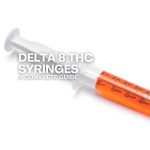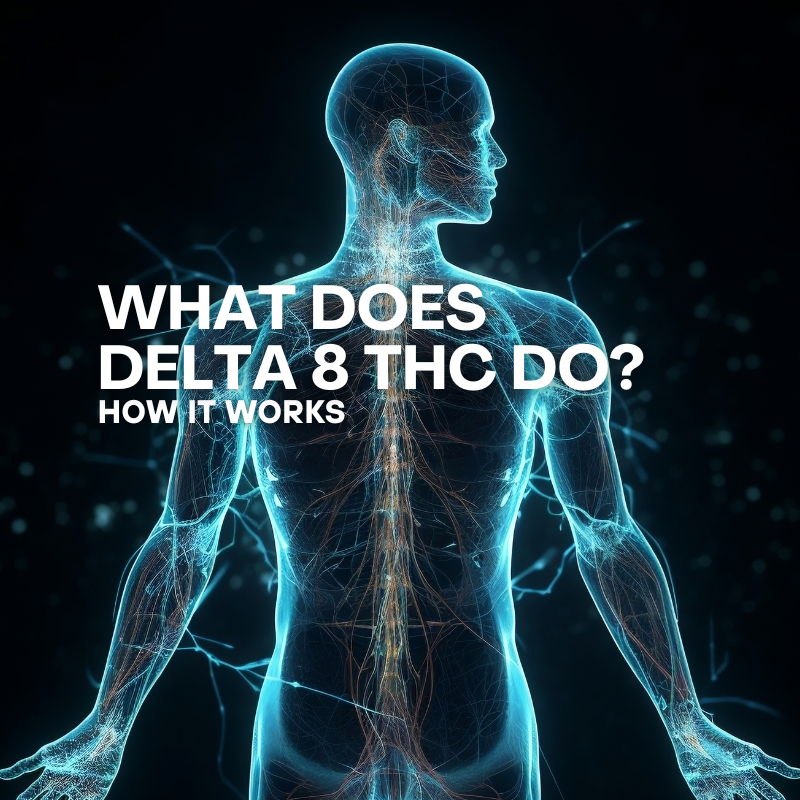Delta 8 THC, a lesser-known cousin of the more famous Delta 9 THC, is making waves for its unique effects and potential therapeutic benefits. But how does Delta 8 THC work in your body? In this blog post, we’ll take a closer look at the fascinating mechanism of action that occurs when Delta 8 THC interacts with your body’s endocannabinoid system.
Understanding Delta 8 THC and the Endocannabinoid System
The Endocannabinoid System (ECS): Before delving into Delta 8 THC, let’s explore the ECS. This intricate system plays a crucial role in maintaining balance (homeostasis) in the body. It consists of receptors, endocannabinoids produced by the body, and enzymes that regulate their synthesis and breakdown.
Interaction with CB1 and CB2 Receptors: Delta 8 THC primarily interacts with the CB1 and CB2 receptors of the ECS. CB1 receptors are predominantly found in the central nervous system, while CB2 receptors are primarily located in the peripheral tissues and immune cells.
The Mechanism of Action
Affinity for CB1 Receptors: Delta 8 THC’s psychoactive effects are attributed to its partial binding affinity for CB1 receptors in the brain. While Delta 8 THC’s binding is less potent than Delta 9 THC, it still induces alterations in mood, perception, and cognition.
Moderate Psychoactivity: Users often report milder psychoactive effects compared to Delta 9 THC. This reduced potency can be attributed to the different structural arrangements of Delta 8 THC’s double bond, resulting in a less binding affinity to CB1 receptors.
Potential Therapeutic Effects: Beyond its psychoactive properties, Delta 8 THC may offer therapeutic benefits. Some users report enhanced focus, mood improvement, and relief from certain symptoms, making it a potential option for those seeking a balance between psychoactivity and well-being.
Metabolism and Duration of Effects
Metabolism in the Liver: Like other cannabinoids, Delta 8 THC undergoes metabolism in the liver, where it is converted into 11-hydroxy-THC. This metabolite is thought to contribute to the overall effects of Delta 8 THC.
Duration of Effects: The duration of Delta 8 THC’s effects varies from person to person. Factors such as metabolism, dosage, and individual sensitivity play a role in determining how long the effects will last.
Safety Considerations and Responsible Use
Start with a Low Dose: Especially for new users, starting with a low dose allows for a gradual understanding of individual tolerance and response to Delta 8 THC.
Be Mindful of Individual Variations: Responses to Delta 8 THC can vary widely among individuals. Factors such as body weight, metabolism, and overall health can influence how Delta 8 THC affects you.
Consult with Healthcare Professionals: If you have any pre-existing health conditions or concerns about potential interactions with medications, it’s advisable to consult with a healthcare professional before using Delta 8 THC.
Navigating the Intricacies of Delta 8 THC
In conclusion, the effects of Delta 8 THC in your body are intricately tied to its interaction with the endocannabinoid system. Understanding this mechanism of action allows users to approach Delta 8 THC with informed expectations, promoting responsible and enjoyable consumption. As with any cannabinoid, individual responses vary, so starting slow, staying informed, and prioritizing responsible use is key to unlocking the potential benefits of Delta 8 THC.






